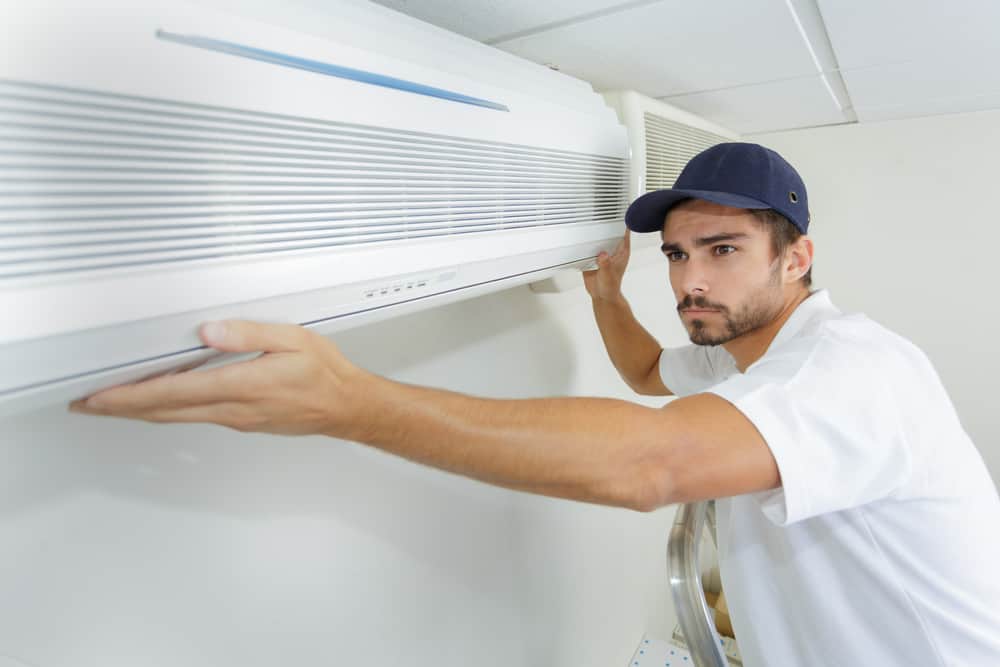Indoor air quality is a critical yet often overlooked aspect of our routine lives. Many people are unaware that the air inside our homes and workplaces can be more polluted than the air outside. This is where heating, ventilation, and climate control systems, commonly referred to as heating, ventilation, and air conditioning, come into play. These systems not only regulate temperature but also are essential in preserving the air we inhale. Understanding how these systems works can help you create a healthier living environment for you and your family.
As we spend a substantial portion of our time indoors, the quality of indoor air has a immediate impact on our health, comfort, and overall well-being. From reducing irritants and pollutants to maintaining proper humidity levels, a well-functioning HVAC system is essential. This article will guide you through the various parts of HVAC, explore common issues you might encounter, and provide expert tips on maximizing your system's efficiency and enhancing indoor air quality. Whether you are a homeowner looking to improve your system or a corporate leader seeking to improve workplace conditions, understanding HVAC is key to creating a pleasant and wholesome environment.
Understanding HVAC Systems
HVAC is heating, airflow, plus cooling, as they are crucial elements in maintaining a comfortable interior environment. These systems are designed to manage temperature, humidity, plus air conditions within residential plus business areas. Through combining these 3 roles, HVAC systems play a vital role in maintaining the house or workplace remains pleasant all year round regardless of the climate.
Heating systems usually employ furnaces and other heating devices for warm up spaces in chillier months. Conversely, cooling systems aid cool the environment during the summer, delivering relief from heat and humidity. Airflow is just as crucial as it brings in new air from outside plus expels stale indoor air, cutting down on pollutants and improving overall indoor air quality. A properly working HVAC system means enjoying optimal comfort plus better living conditions.
To completely grasp how these systems work, you must acquaint oneself with their components, including temperature controls, ductwork, filters, and others. Frequent upkeep and knowledge of usual issues may help ensure your HVAC system functions smoothly and reliably. Getting to know the specific features of your heating and cooling system may also assist in making informed choices about improvements and maintenance, which ultimately improving the quality of your indoor environment.
The Impact of HVAC on Indoor Air Quality
Indoor atmosphere quality is essential for ensuring a sound and comfortable living space, and HVAC systems play a significant role in this aspect. Well-designed and upkept HVAC systems clean and ventilate the air, eliminating pollutants, allergens, and contaminants that can adversely affect health. This is particularly crucial in homes and commercial buildings where people spend a lot of time. Effective ventilation, a important component of HVAC systems, guarantees that clean air is introduced while old air is vented, promoting a cleaner indoor environment.
Managing humidity is another important function of HVAC systems that directly impacts indoor air quality. High humidity levels can cause the growth of mold, bacteria, and dust mites, all of which can trigger allergies and respiratory issues. Conversely, low humidity can cause discomfort and result in dry skin and respiratory problems. An efficient HVAC system helps control humidity levels, ensuring a consistent atmosphere that enhances comfort and minimizes health risks.
Lastly, the types of air filters used in HVAC systems considerably influence indoor air quality. air conditioning replacement , such as, are specifically made to capture tiny particles and allergens, providing cleaner air. Regular" maintenance and appropriate replacement of air filters are essential to ensure that these systems perform optimally. By choosing the best filters and keeping the system in top shape, homeowners and businesses can efficiently improve indoor air quality, enhancing overall well-being and productivity.
Heating, Ventilation, and Air Conditioning Maintenance and Efficiency Recommendations
Frequent maintenance is essential for ensuring your HVAC system running efficiently and extending its duration. Start by replacing https://rentry.co/3aztz3ti to three month, based on usage and the type of filter. Blocked filters limit airflow, forcing your system work harder and leading to higher energy consumption and strain on the equipment. Additionally, make sure that the outside unit is free from debris, leaves, or other obstructions, as they can hinder its performance.
Performing seasonal tune-ups is a further effective strategy to improve HVAC efficiency. Plan professional inspections at least twice a year—one time before summer and once before winter. During these check-ups, a technician can identify potential issues, clean essential components, and optimize the system's efficiency. This proactive approach not only guarantee a comfortable environment but also helps in preventing costly repairs down the line.

Finally, think about upgrading to intelligent thermostats and high-efficiency HVAC systems. Smart thermostats allow you to set temperatures based on your routine, reducing energy waste when you're not home. Investing in Energy Star-rated equipment can lead to substantial long-term savings on energy bills while also contributing to a reduction in your carbon footprint. By implementing these maintenance and efficiency tips, you'll create a more pleasant and cost-effective indoor environment.
